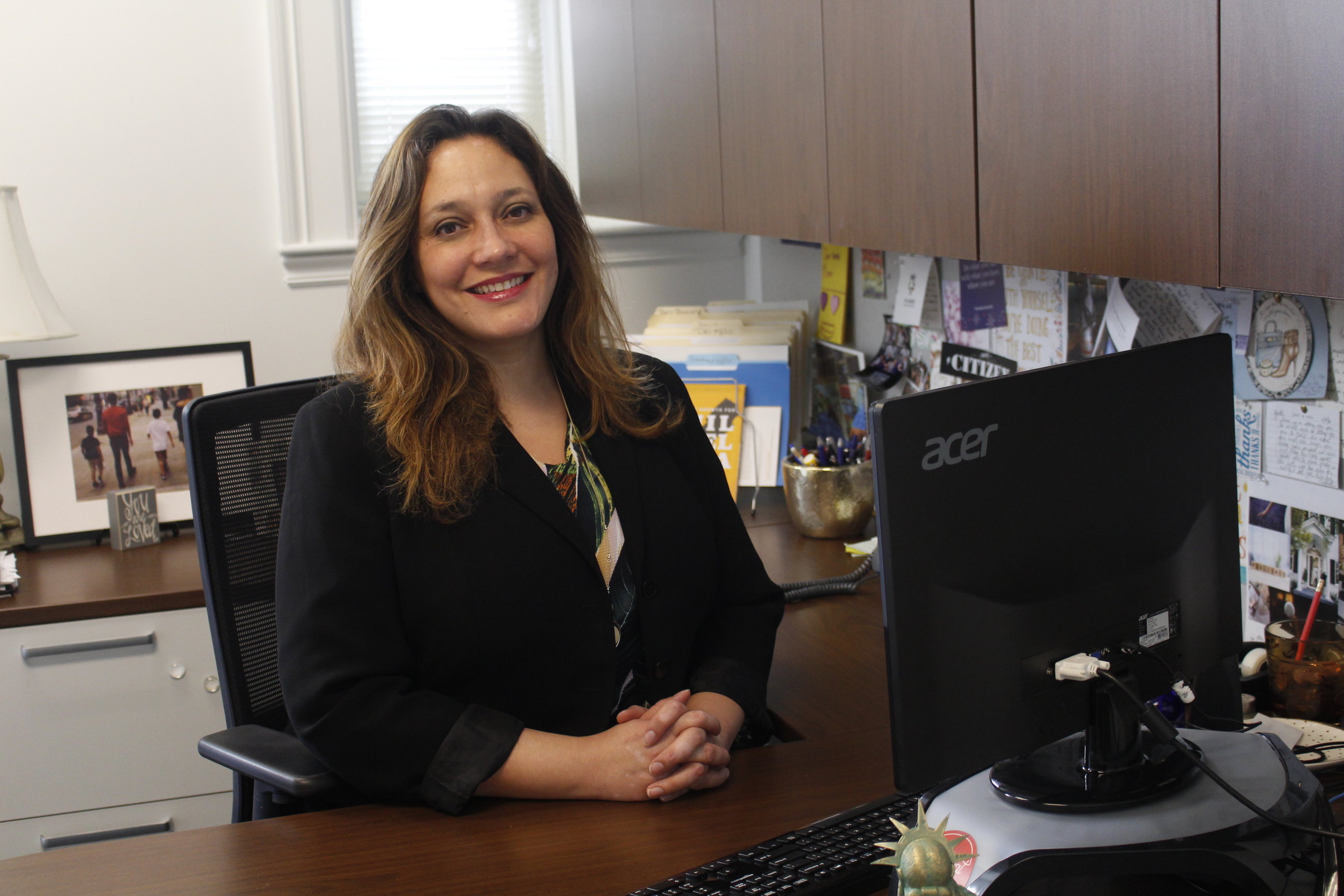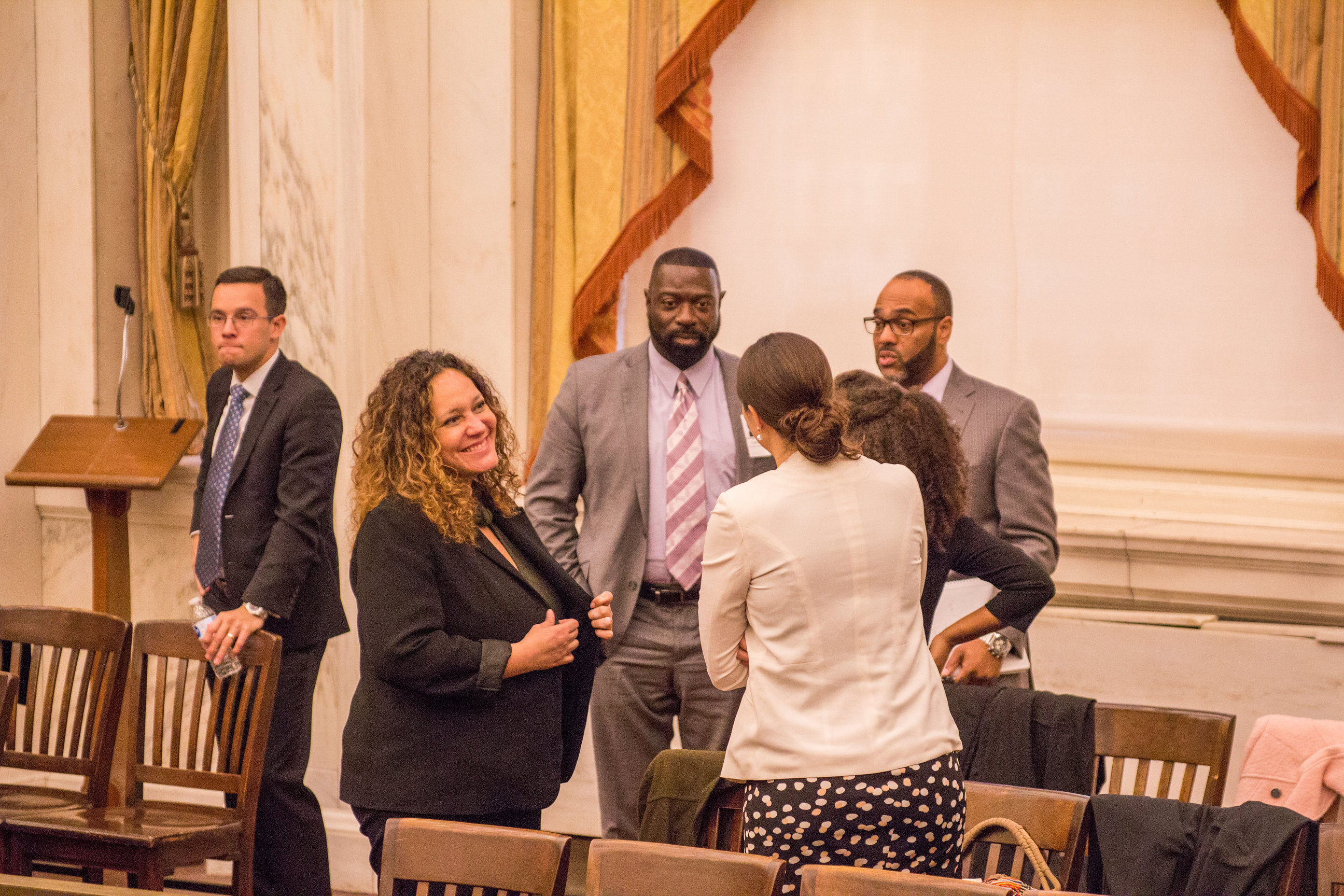
Changing how we address poverty in Philadelphia
As the vice president of civic affairs at the Chamber of Commerce for Greater Philadelphia, Yvette Núñez has helped expand efforts that directly impact those…
When the topic of poverty becomes a conversation, far too often it occurs without economically disadvantaged people in the room.
This dynamic creates misrepresentation, generalizations and untruths about the realities of living in poverty.
Yvette Núñez, vice president of civic affairs at the Chamber of Commerce for Greater Philadelphia, serves as a representative voice in changing the conversation surrounding the topic of poverty.
It’s a topic near and dear to her because of her background, growing up in a now-imploded housing project in Newark, New Jersey.
In addition to poverty, she witnessed how alcoholism, drug addiction, and incarceration impacted those closest to her.
“I look at my upbringing as the reason why I am where I am,” said Núñez.
In her role as vice president of civic affairs, Núñez leads the Chamber’s roadmap for growth action team, which focuses on revitalizing neighborhoods, creating jobs and developing the workforce in Philadelphia.
With a career that has spanned more than 20 years in communications and the nonprofit sector, Núñez said she’s long wanted to work for organizations that serve those who are living in poverty.
“A part of that is because I very much have walked in both worlds,” she said. “I see how poor people are discussed and talked about when they’re not in the room… people who haven’t experienced poverty can’t imagine what that’s like.”
Throughout her career, Núñez has noticed that while there are many organizations working to address poverty, it’s still usually the case that “we talk about poor people, but not with poor people,” she said.
“We’re comfortable serving poor people, we’re comfortable bringing resources — food and clothing and shelter — but don’t often just have conversations with poor people,” Núñez added.

That reality drives her to use her experiences and her platform to serve those populations in any way possible.
Núñez often thinks of the various reasons that may go into why an individual may not make it out of poverty. She highlighted addiction and not having the right support system as some of the reasons, but also the idea of poverty being about numbers, and less about the people, themselves.
“I think that’s a part of what keeps poverty persistent,” she noted. “We have a lot of data, we have a lot of systems and infrastructure, but we’re not really getting to the root of the person.”
As she’s seen the resilience of people who live in poverty, this reality drives Núñez to use her experiences and her platform to serve those populations in any way possible.
With her role, Núñez is able to occupy spaces in which she can be a voice for those who are living in poverty, but aren’t in the room, and not allow assumptions to take the forefront when discussing the issue.
Launched in 2014, the Roadmap for Growth consists of a group of 110+ Chamber members and partners united to engage with civic and neighborhood organizations in developing policies and initiatives that enhance the city’s economy, encourage civic engagement and support an efficient and impactful government.
Initially, priorities of the Roadmap included programs related to workforce development, transportation and infrastructure — all of which are considered key factors in helping drive economic growth in Philadelphia neighborhoods.
Since joining the Chamber in 2016, Núñez has been tasked with overseeing the initiative. With that, she’s brought her passion, making it a point of emphasis to bring these programs into neighborhoods.
RELATED CONTENT
“It was important for me that we weren’t just talking about neighborhoods, but going into neighborhoods to build relationships,” she said.
This has helped grow the number of resources, partners the Chamber has begun working with, and helped expand the conversation to include inclusive growth, homelessness, the opioid epidemic, and more of the most pressing issues of these neighborhoods.

In March 2019, the Chamber launched the PHL Neighborhood Growth Project, a long-term initiative focused on expanding prosperity to every Philadelphia neighborhood.
After months of research and surveys that went into figuring out how to build job creation and growth, and improve small businesses, a policy agenda was created, which identified four pillars: inclusive growth and good jobs; education and workforce modernization; safe and healthy neighborhoods; and putting people first in City Hall.
Identifying these pillars has brought more attention to the issues, allowing companies to partner with the Chamber in the hopes of finding more effective ways to address the problem.
“As we are talking about people living in poverty and working families, we also need to be talking about jobs,” said Núñez. “We talk about preparing our future workforce, but that workforce won’t have jobs to go into if we also don’t make sure that the companies that are here stay and grow, and that new companies launch or move into the city.”
Overall, under Núñez’s stewardship, the Chamber and other organizations have taken a different approach towards addressing poverty by creating opportunities to engage communities that are often dismissed before they even enter the room. These efforts have also focused on youth and those who are eligible for the workforce, but are aged-out of various workforce-related programs.
“Our ability to transform the future relies on our ability to produce well-educated, well-resourced children and have schools that are environmentally sound and with the resources that they need,” said Núñez. “But there are adults walking around right now who are of working age who don’t have those resources.”
With the Roadmap, the Chamber and these organizations have an opportunity to make impactful change towards addressing poverty and creating jobs that help change the economic situations of many living in Philadelphia.

This article is part of Broke in Philly, a collaborative reporting project among more than 20 news organizations, focused on economic mobility in Philadelphia. Read all of our reporting at brokeinphilly.org.










LEAVE A COMMENT: